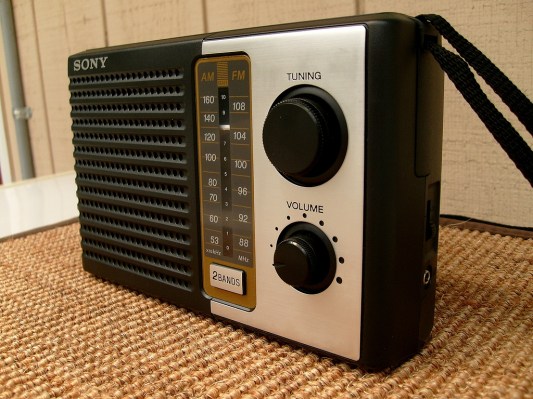PRX, the nonprofit organization that operates a marketplace for public radio programming like This American Life, announced today that it’s spinning out a for-profit company, RadioPublic.
For public radio fans, this means you’ll soon get mobile apps that offer access to the full PRX catalog, including The Moth Radio Hour and the Radiotopia podcast network. And even if you’re not a fan, the combined PRX-RadioPublic enterprise is a noteworthy attempt at creating a “hybrid” media business model.
Jake Shapiro was founding CEO at PRX. Now he’s transitioning over to serve the same role at RadioPublic, and he told me that by building its own mobile apps, the company is hoping to “help an entire industry rethink radio.” That includes experimenting with new technology to recommend content and giving content creators more data about their audience.
Given that aim, Shapiro said it made sense to “make a much bigger bet” — not just making the app “one more project on our list” but in fact launching an entirely new company.
And by making RadioPublic a for-profit business (albeit a public benefit corporation), the company opened up to outside investment. In fact, RadioPublic has already raised an undisclosed amount of funding from Project11, The New York Times, Graham Holdings, UP2398, Knight Foundation Enterprise Fund, Matter Ventures, American Public Media, McClatchy and Homebrew.
Shapiro described the decision to make RadioPublic a for-profit as “very deliberate,” saying it will allow the company to pursue “a different kind of growth plan” while remaining “very aligned around the purpose and the mission.” He also pointed to Matter Ventures, the media startup accelerator that PRX helped create, as an earlier example of how the organization could tap into the for-profit model: “This is terrain that we’re very familiar with.”
Kerri Hoffman, a longtime PRX executive who’s taking over as CEO, said that launching RadioPublic allows PRX to “relieve some of the internal tensions we have about our ambitions around how do we reach the audience in an increasingly mobile age.”
To be clear, Shapiro and Hoffman said this shouldn’t affect any of the existing distribution channels for PRX shows, whether it’s podcasts, other apps or broadcast radio. When I brought up concerns that some of these new distribution methods could hurt public radio stations, Hoffman argued, “We need a strong public radio service that’s also modern.”
“We feel optimistic about where things are going, but we have to keep planting flags,” she said. “We have to keep pushing for more innovation.”
